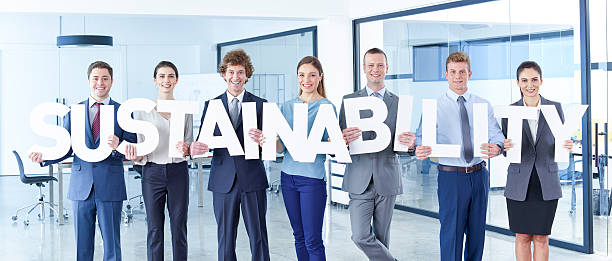The world is gradually transforming into a sustainable entity. With the rapid depletion of valuable resources, saving and protecting them for future use has become integral. Of the million ways aiming toward sustainability, sustainable enterprise development is one such step working toward achieving feasibility in terms of economic growth.
The idea of sustainability was born amidst rapid environmental changes at the global level. Perhaps, this led to the growth of responsibility among individuals toward developing long-term goals for the availability of resources in the future. Adopting the goals of sustainability not only saves the environment from further degradation but also benefits the companies in several ways.
However, sustainability, as per the UN, is not unidimensional. The three aspects of sustainable development are: environmental, social, and economic. Thus, sustainability is not simply limited to ecological growth. It also encompasses goals of equity and economic growth.
Sustainable enterprise development is a representation of the economic aspect of sustainable development. Consequently, it is the need of the future. It is different from the general idea of enterprise as it strives to leave the world in a better position. This initiative attempts to eradicate the environmental harm generated by the consumption of the goods produced by the businesses. Changes such as:
- Going paperless
- Replacing plastic with a harmless material
- The use of non-toxic raw materials
- Making ample use of renewable resources for generating energy
Such meaningful changes can collectively help in achieving sustainability.
But how can sustainability be achieved if the vulnerable groups remain out of the vision? It is a well-known fact that the resources are unequally distributed across the world. As a result, this creates a big gap between the different social groups and eventually stratifies society. Herein the goal of social entrepreneurship and environmental sustainability plays a role.
Social entrepreneurship environmental sustainability sits between the two worlds of businessmen and community workers. Together, they strive to bring facilities to those whom capitalism failed. Thus, social entrepreneurs, collaborating the best of both worlds, try to bring an end to social injustice occurring as a result of years of oppression and discrimination against certain groups in society.
Over the years, social entrepreneurs have facilitated global health while also improving environmental well-being. They spare no effort to reach out to as many people as possible with the sole intention of helping them and solving their problems in the most effective way possible. Social entrepreneurs follow a certain technique to bring about the change. These are as follows:
- Identifying the groups and their problems that the government could not reach.
- Applying business strategies in solving these social problems.
- Focusing on cost-effective and environment-friendly solutions. The severe constraints in resources force social entrepreneurs to create innovative solutions.
Therefore, social entrepreneurship is viable and can help in bringing the world closer to attaining sustainable development goals.
Thus, to identify a social yet sustainable business one must keep the following criteria in mind:
- The principles of sustainability reside at the heart of each business decision taken by the company.
- The primary concern of the business is always to replace the need for non-green products and services with sustainable ones.
- Apart from environmental growth, the enterprise must also ensure social justice and equality, the other hand of sustainability.
- Strives to develop creative ideas to sort the problems and reach a sustainable solution for the world.















